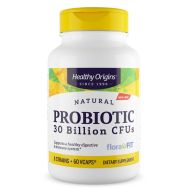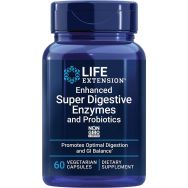Why is Gut Health so Important?

Introduction
The human body is a complex and intricate system, and at the center of it all lies the gut. Often referred to as the "second brain," the gut plays a crucial role in maintaining overall health and well-being. In recent years, scientific research has increasingly highlighted the importance of gut health and its impact on various aspects of our lives, from digestion to mental health.
The gut is home to trillions of microorganisms, collectively known as the gut microbiota. This diverse community of bacteria, viruses, fungi, and other microbes form a delicate balance that directly influences our health. Maintaining a harmonious relationship with these microorganisms is essential for proper digestion, nutrient absorption, and the overall functioning of the immune system.
Digestive harmony
One of the primary functions of the gut is the digestion and absorption of nutrients from the food we consume. A healthy gut microbiota helps break down complex carbohydrates, proteins, and fats, turning them into nutrients that our bodies can use. When this balance is disrupted, it can lead to various digestive issues such as bloating, constipation, or irritable bowel syndrome (IBS).
Immune system support
Surprisingly, a significant portion of our immune system resides in the gut. The gut microbiota plays a vital role in training the immune system to distinguish between friend and foe. A well-balanced gut microbiome helps defend against harmful pathogens while promoting the growth of beneficial bacteria.
Mood and mind
The gut-brain axis, a bidirectional communication system between the gut and the brain, highlights the intricate connection between our digestive system and mental well-being. Emerging research suggests that an imbalanced gut microbiota may contribute to mental health issues such as anxiety and depression. Probiotics, which are beneficial bacteria, have shown promise in promoting mental well-being by influencing the gut-brain axis.
Tips for a Healthy Gut:
-
Diverse Diet: Consume a wide variety of fruits, vegetables, whole grains, and lean proteins to provide diverse nutrients that support a healthy gut microbiota.
-
Probiotics: Incorporate probiotic-rich foods like yogurt, kefir, sauerkraut, and kimchi into your diet to introduce beneficial bacteria.
-
Prebiotics: Include prebiotic-rich foods such as garlic, onions, bananas, and asparagus to provide the necessary fuel for the growth of beneficial microbes.
-
Hydration: Drink plenty of water to support the digestive process and maintain a healthy balance in the gut.
-
Limit Antibiotic Use: Use antibiotics with caution, as they can disrupt the balance of the gut microbiota. If prescribed, consider probiotic supplements to replenish beneficial bacteria.
Supplements for gut health
- Probiotics: Cultivating the Good Bacteria
Probiotics are live bacteria and yeasts that confer health benefits when consumed in adequate amounts. These supplements introduce beneficial microorganisms into the gut, helping to maintain a healthy balance of bacteria. Strains like Lactobacillus and Bifidobacterium are commonly found in probiotic supplements and can aid in digestion, boost immunity, and contribute to a thriving gut ecosystem.
- Prebiotics: Fueling the Microbial Fire
Prebiotics are non-digestible fibers that serve as a food source for the beneficial bacteria in the gut. While they are naturally present in certain foods like garlic, onions, and bananas, prebiotic supplements can be a convenient way to ensure an adequate intake. By fostering the growth of good bacteria, prebiotics contribute to a robust and diverse gut microbiome.
- Digestive Enzymes: Enhancing Nutrient Absorption
Digestive enzymes are essential for breaking down food into nutrients that the body can absorb. Sometimes, the body may not produce enough of these enzymes, leading to digestive discomfort. Enzyme supplements, containing amylase, protease, and lipase, can aid in the efficient digestion of carbohydrates, proteins, and fats, promoting nutrient absorption and reducing bloating or indigestion.
- Fish Oil: Omega-3 Fatty Acids for Inflammation Control
Omega-3 fatty acids, particularly EPA and DHA found in fish oil, have anti-inflammatory properties that can benefit gut health. Chronic inflammation in the gut may contribute to conditions like inflammatory bowel disease (IBD). Including fish oil supplements can help manage inflammation, support a healthy gut lining, and contribute to the overall well-being of the digestive system.
- L-Glutamine: Repairing the Gut Lining
L-Glutamine, an amino acid, plays a crucial role in maintaining the integrity of the gut lining. It is essential for the repair and regeneration of the cells lining the digestive tract. Individuals with conditions like leaky gut syndrome may benefit from L-Glutamine supplements, as they support the healing process and contribute to a healthier gut barrier.
Conclusion
Nurturing your gut health is a fundamental step towards overall well-being. By adopting a balanced and mindful approach to your diet and lifestyle, you can support the trillions of microorganisms working tirelessly within you to keep you healthy, both physically and mentally. Remember, a happy gut often translates to a happier, healthier you.













